نقد و بررسی
پرسشنامه اشتیاق شغلی (سالوناوا و شوفلی، 2001)فهرست مطالب:
- مفهوم نوآوری
- مولفه های نوآوری سازمانی
- نوآوری سازمانی در آموزش و پرورشمنابع فارسی
- منابع غیر فارسی
بخشی از محصول
هویت سازمانی از جمله متغیر هایی است که در کمک به اطمينان از کارکرد کارکنان در جهت منافع سازمان، بيش از حد حائز اهميت ميباشد، از این رو مفهوم هويت سازماني به یک مفهوم اساسی در حوزهي رفتار سازماني تبديل شده و به طور کلي توجه رو به افزايشی را در تحقيقات مديريت به خود جلب کرده است. مطالعات انجام شده در زمینه هویت سازمانی بر این نکته اذعان دارند که هویت سازمانی به عنوان حالت روانشناختي، نشاندهندهي ارتباط زيربنايي موجود بين کارمندان و سازمان بوده و بنابراين به صورت بالقوه قادر به تشريح و پيشبيني بسياري از گرايشها حائز اهميت رفتاری در محل کار مي¬باشد( کونووسکی و همکاران ، 2022). هويت سازماني يك چارچوب شناختي براي فهم واقعيت است و به عنوان پيش فرض¬هاي مشترك در مورد سازمان به کار مي¬رود. اين مفهوم به عنوان يك گفت و شنود راجع به احساس و واقعيت و همچنين به عنوان درخواست¬هاي جمعي در مورد محتواي سازمان و نیز تسهیل کننده هويت شخصي به كار مي¬رود. چالش های هویتی امروزه سرنوشت سازند. بر اساس اجماع علمی ، هویت پیش شرط هر نوع عمل ، به ویژه عمل اجتماعی و شرط لازم توسعه است. “لئونارد پاندر” (1998)معتقد است: «اگر کشوری بخواهد به رشد و توسعه برسد باید پنج بحران را پشت سر بگذارد(مرادی و همکاران، 2019) این بحران ها عبارتند از بحران هویت، بحران مشارکت، بحران نفوذ(رهبری)، بحران مشروعیت و بحران توزیع ».
منابع فارسی
- آقانژاد، یاسر و قدس، احداله (1401) به بررسی رابطه بین جو مشارکتی و تعلق سازمانی کارکنان، مطالعات روانشناسی صنعتی و سازمانی، 9(1). 186-169
- اخروی، امیرحسین و پاسبان، معصومه، (1403)،نگرش سیستمی به مفهوم تعلق سازمانی: پارامترهای موثر، پیامدها، مصادیق، چالش ها و راهکارها،اولین کنفرانس ملی دیدگاه های نوین در مدیریت و حسابداری با رویکرد تحول سازمانی،شیراز، 1، 19-1
- بادپا، بهروز(1399)کاربرد تئوری هویت اجتماعی در حسابرسی،چهارمین کنفرانس بین المللی چشم اندازهای نوین در حسابداری، مدیریت و کارآفرینی،تهران،https://civilica.com/doc/1143029
- باقری، مرتضی و رضایی، محمدجواد،(1402)،بررسی رابطه هویت سازمانی و سرمایه اجتماعی با سکوت سازمانی معلمان دبستان های ناحیه یک یزد،ششمین همایش ملی فناوری های نوین در تعلیم و تربیت، روانشناسی و مشاوره ایران،تهران،https://civilica.com/doc/1836585
- تبیانیان، حسن و محمدی، شهرام و شاوردیان، فاطمه(1400) هویت یابی سازمانی؛ مفاهیم، مولفه ها و عوامل موثر،اولین کنفرانس بین المللی جهش علوم مدیریت، اقتصاد و حسابداری،ساری،https://civilica.com/doc/1463288
- جلیلی، راضیه و تنها، زهرا و ساکی، مریم(1398) بررسی رابطه بین سبک های هویت و انگیزه پیشرفت با عملکرد تحصیلی دانش آموزان متوسطه دوم شهر خرم آباد،سومین همایش ملی روانشناسی، تعلیم و تربیت و سبک زندگی،قزوین،https://civilica.com/doc/1020793
- خزاعی سید مهدی. (1395). بررسي تاثيرهوش هيجاني بر تعلقخاطر كاري (مطالعه موردي سير و حركت خط 5 متروي تهران). پاياننامه كارشناسي ارشد رشته مديريت اجرائي دانشگاه پیام نور
- دوران گرد ناوی، سبحان و خالق خواه، علی (1401) ،بررسی رابطه هویت سازمانی با سکوت سازمانی از دیدگاه معلمان مقطع ابتدایی شهرستان تالش،سومین همایش ملی مدرسه آینده،اردبیل،https://civilica.com/doc/1704899
- دهقان، م (1398)، رابطه هوش هیجانی با عملکرد شغلی و مدیریت تعارض در کارکنان سازمان آتش نشانی استان سمنان، پایان نامه جهت دریافت مدرک کارشناسی ارشد، رشته روانشناسی، موسسه آموزش عالی فروردین قائمشهر
- سنگسری، فاطمه و خان فرخانی، آسیه و شاه تقی، مهدیه و حیدری، محمد،(1402)، بررسی مروری ارتباط شفافیت سازمانی و تعهد سازمانی در سازمان ها، دهمین کنفرانس بین المللی تحقیقات بین رشته ای در مدیریت، حسابداری و اقتصاد در ایران،تهران، 15-1
- شریفی، محمد(1402) بررسی عناصر و ابعاد هویت سازمانی و تاثیر آن در پیشبرد سازمان ها،نهمین کنفرانس بین المللی علوم مدیریت و حسابداری،تهران،https://civilica.com/doc/1671551
- فیض آبادی، زهرا. بر حسب هاشمی، مالک (1390). پیشبینی تعلق خاطر کاری بر اساس ویژگیهای شخصیتی در کارکنان بانکهای خصوصی و دولتی شهر تهران. فصلنامه دانش و پژوهش در روانشناسی کاربردی. شماره چهارم.
- قلی پور،ا؛ امیری،ب (1388)،«تاثیر فناوری اطلاعات بر رفتار سازمانی:بررسی چالش های هویتی در تیم های مجازی و تاثیر آن بر رفتار اعضای تیم». نشریه مدیریت فناوری اطلاعات،دوره 1، شماره 2،ص 118-103
- لیاقت، فهیمه(1402)رابطه ی هویت سازمانی بر سکوت تدافعی سازمانی (مورد مطالعه: شهرداری بندرعباس)،https://civilica.com/doc/1963195
- کرمی مقدم، آرزو، حمیدیه، علیرضا(1403).بررسی تاثیر مدیریت تنوع بر تعلق شغلی از طریق اعتماد سازمانی و امنیت شغلی در سازمان آب و فاضلاب استان البرز.محل انتشار: هفدهمین کنفرانس بین المللی انجمن ایرانی تحقیق در عملیات، 1-23.
- گل پرور، محسن. وعریضی، حمید رضا.، 1387، فرا تحلیلی بر رابطه بین ابعاد تعهد سازمانی با جایگزینهای شغلی، میل ماندن وتمایل به ترک خدمت، دو ماهنامه علمی وپژوهشی دانشگاه شاهد (دانشور رفتار)، سال پانزدهم، شماره 33. 85-97.
- متاجی نیموری ف و عاشقعلی شاهی م. (1400). بررسی عوامل موثر بر تعلق خاطر شغلی در سازمان. فصلنامه علمی تخصصی رویکردهای پژوهشی نوین در مدیریت و حسابداری, 5(64), 91-112.
- مختاری سبدانی مهدی. (1399). رابطه تعلق خاطر کاری با عملکرد شغلی و نقش میانجیگری عدالت سازمانی در بین کارکنان آموزش و پرورش شهر اصفهان پایان¬نامه برای دریافت درجه کارشناسی ارشد در رشته رشته علوم تربیتی
- میر هاشمی، مالک (1387). پیش بینی کنندههای تعلق خاطر کاری در استادان دانشگاه آزاد اسلامی، فصلنامه روانشاسی تحولی، شماره 15، 235-244.
- مرادی،م؛موسوی حجازی،ب:(1378)،:«نقش طراحان در روند خلق هویت سازمانی».مقالات تدبیر،شماره 194،تیر1378،صفحه19.
- محمودی،س(1391)،«بررسی رابطه بین هویت سازمانی با رضایت شغلی و رفتار فرانقش در میان اعضای هیات علمی دانشگاه علوم پزشکی ارومیه».دانشگاه ارومیه
- نوراللهی، علی اصغر و نجفی هزارجریبی، حبیب اله(1402)بررسی رابطه بین هویت سازمانی با رضایت شغلی و عملکرد کارکنان سازمان جهاد کشاورزی استان گلستان،نهمین کنفرانس بین المللی علوم مدیریت و حسابداری،تهران،https://civilica.com/doc/1671566
Non-Persian References
- Ahmad, N., Ullah, Z., AlDhaen, E., Han, H., & Scholz, M. (2022). A CSR perspective to foster employee creativity in the banking sector: The role of work engagement and psychological safety. Journal of Retailing and Consumer Services, 67, 102968.
- Ali, S.H.; Sağsan, M. (2020). The Moderating Effect of Ethical Leadership between Psychological Ownership of Knowledge and Knowledge Hiding: An Empirical Study on the Public Universities in Northern Iraq. Rev. Argent. Clín. Psicol, 30, 178.
- Ahmed I, Z. Abid, G. Contreras, F.; Hassan, Q.; Zafar, R. (2020). Ethical leadership and innovative work behavior: The mediating role of individual attributes. J. Open Innov. Technol. Mark. Complex, 6, 68
- Ahmad, I. Gao, Y. Su, F.; Khan, M.K. (2021). Linking ethical leadership to followers’ innovative work behavior in Pakistan: The vital roles of psychological safety and proactive personality. Eur. J. Innov. Manag. 45-78
- Akyurt, N. (2023). Organizational commitment and job satisfaction in relation to organizational silence and perceived leadership behavior among radiology technicians. Journal of Vocational School of Health Service, 11(3), 1729-1743. APA Format.
- Attar, N. E. (2023). Role expansion of individual workforce through a drama based organisational intervention. EuroMed Journal of Management, 5(1), 29-45.
- Alghatouneh, W., Kruiter, J., Lockhorst, D., Schenke, .,Sligte, H., Smit, B., & de Wit, W. (2016). Affordances of teacher professional learning in secondary schools. Studies in continuing education, 38(3), 281-298
- Ayoub, A.E (2021).Innovative work behavior scale: Development and validation of psychometric properties in higher education in the GCC countries. Eur. J. Innov. Manag
- Al-Romeedy, B.S. and El-Sisi, S. (2024), “Does workplace incivility affect travel agency performance through innovation, organizational citizenship behaviors, and organizational commitment?”, Tourism Review, Vol. 79 No. 8, pp. 1474-1491. https://doi.org/10.1108/TR-06-2023-0389
- BALOGUN, I. N., & ISIAKA, B. A. (2025). Integrating Innovations into Teacher Education through Curriculum, Research Reports and Findings in Nigeria. Ilorin Journal of Education, 45(2), 176–190. Retrieved from https://ije.unilorinedu.sch.ng/index.php/ije/article/view/249
- Bora. L (2024). Inclusion leadership and employee work engagement: The role of organizational commitment in Cambodian public organization, Asia Pacific Management Review, 29(1).44-52
- Bakker, A. B. (2017). Strategic and proactive approaches to work engagement. Organisational Dynamics, 46, 67–75
- Bakker, A. B., & Schaufeli, W. B. (2014). Work Engagement. Wiley Encyclopedia of Management, 1–5.
- Carmeli, A. , 2005, Exploring determinants of job involvement: an empirical test among senior executives, International Journal of Manpower, Vol. 26 No. 5 P. 457- 458
- Carmeli, A. , 2007, Exploring determinants of job involvement: an empirical test among senior executives, International Journal of Manpower, Vol. 26 No. 5 P. 457- 458
- Chong, Y, Reza, M, Hutahayan, B (2025). Fostering high-performing organizations in higher education: theeffect of participative leadership, organizational culture, andinnovation on organizational performance and commitment, HIGHER EDUCATION | RESEARCH ARTICLE, 12(1). 25-39
- Chungtai AA (2008). Impact of Job Involvement on In-Role Job Performance and Organizational Citizenship Behaviour, PP. 169-170.
- Chow, N. F. M. M., and Abdullah, N. A. (2019). Relationship organizational commitment and emotional intelligence with work performance of adult students. J. Psikol. Malays. 33, 21–32
- Darwish, S.; Ahmed, U.; (2020).Innovative work behavior during COVID-19 for medical representative in the pharmaceutical industry: Test of a moderation model in bahrain. Int. J. Pharm. Res, 12, 1927–1934.
- Ertaş, B.D., Pekmezci, F.B. Career Motivation and Job Satisfaction in Türkiye: Mediating Role of Teacher İnnovativeness and İnstructional Practice. Asia-Pacific Edu Res 34, 193–207 (2025). https://doi.org/10.1007/s40299-024-00846-1
- Garcia-Sierra, R., Fernandez-Castro, J., & Martinez-Zaragoza, F. (2015). Work engagement in nursing : an integrative review of the literature. Journal of Nursing Management, 1–11.
- Gülbahar, B. (2017). The Relationship between Work Engagement and Organisational Trust: A Study of Elementary School Teachers in Turkey. Journal of Education and Training Studies, 5(2), 149–159.
- Guo, Y., & Hou, X. (2022). The effects of job crafting on tour leaders’ work engagement: the mediating role of person-job fit and meaningfulness of work. International Journal of Contemporary Hospitality Management.
- Gwal, R., & Gwal, A. (2019). Personality Dimensions as a correlate of Work Engagement: A Study of working women in Indore city. NMIMS Journal of Economics and Public Policy, 4(4), 37-47.
- Hafer, J. C. & Martin, T. N. , 2009, Job Involvement or Affective Commitment: A Sensitivity Analysis Study of Apathetic Employee Mobility. Institute of Behavioral and Applied Management. September University of Nebraska at Omaha.
- Koçak, D., & Kerse, G. (2022). How perceived organizational obstruction influences job satisfaction: The roles of interactional justice and organizational identification. SAGE Journal.
- Konovsky, M. A., Cropanzano, M., & Boies, D. L. (2022). The relationship between organizational silence and organizational justice: Exploring the mediating role of organizational trust. Journal of Management, 48(2), 313-337.
- Li, H., Chen, J., & Wang, Y. (2022). Organizational silence and organizational commitment: Evidence from China. International Journal of Human Resource Management, 33(10), 1783-1805.
- Lau, V. P., & Shaffer, M. A. (2023). A typological theory of domestic employees’ acculturation stress and adaptation in the context of globalization. Academy of Management Review, 48(1), 57-77.
- Lee, Y., Lee, J. Y., & Lee, J. (2021). The relationship between work engagement and workaholism: a systematic review and meta-analysis. European Journal of Training and Development.
- Li, X., Xu, Y. & Huang, D. Exploring the interplay between social connectedness, job control, and organizational commitment: the mediating role of work engagement among Chinese teachers. BMC Psychol 13, 31 (2025). https://doi.org/10.1186/s40359-025-02355-2
- Liao. M. t. Wong. I. Tseng. T. Chang., A., V. (2017). Applying consumer-based brand equity in luxury hotel branding, Journal of Business Research. 5(36), 56-71
- Mishra, S.; Braun, E. (2021). The Changing Role of Higher Education: From Social/Societal Aspect to Employability Gains. In Learning Gain in Higher Education; Emerald Publishing Limited: Bentley, UK
- Mirza, B.; Jamil, A. (2021). The influence of ethical leadership on innovative performance: Modeling the mediating role of intellectual capital. J. Manag. Dev, 40, 273–292.
- Mishra, A., & Mishra, S. (2022). The role of organizational silence in conflict management: An empirical study from the Indian public sector. Public Administration Review, 82(2), 381-394.
- Moradi, E., Safania, A. M., & Poorsoltani Zarandi, H. (2019). The causal relationship between organizational silence with organizational citizenship behavior: Mediating role of organizational identity. Journal of Sport Management and Behavioral Sciences, 26(1), 131-150. APA Format
- Mockałło, Z. (2020).Authentic Leadership Style and Worker Innovativeness and Wellbeing: The Role of Climate for Creativity. In Healthy Worker and Healthy Organization; CRC Press: Boca Raton, FL, USA; pp. 25–46.
- Mura, A. L., Nonnis, M., Scrima, F., & Fornara, F. (2023). Promoting the work engagement of the health worker: The role of secure workplace attachment, perceived spatial-physical comfort, and relationship with patients. Journal of Environmental Psychology, 85, 101937.
- Mussagulova, A. (2021). Predictors of work engagement: Drawing on job demands–resources theory and public service motivation. Australian Journal of Public Administration, 80(2), 217-238.
- Nkambwe, I., & Dominic, T. (2021). Work Engagement among Employees of Health Based NGOs: Do all its Dimensions Matter for Quality Service Delivery?. ORSEA JOURNAL, 10(2).
- Ölçer, F. and Coşkun, Ö.F. (2024), “The mediating role of organizational silence in the relationship between organizational justice and organizational creativity”, Society and Business Review, Vol. 19 No. 1, pp. 23-46. https://doi.org/10.1108/SBR-09-2021-0172
- Oberländer, M., & Bipp, T. (2022). Do digital competencies and social support boost work engagement during the COVID-19 pandemic?. Computers in human behavior, 130, 107172.
- Parent-Lamarche, A. (2022). Teleworking, work engagement, and intention to quit during the COVID-19 pandemic: same storm, different boats?. International journal of environmental research and public health, 19(3), 1267.
- Perera, H. N., Vosicka, L., Granziera, H., & McIlveen, P. (2018). Towards an integrative perspective on the structure of teacher work engagement. Journal of Vocational Behavior, 108, 28-41.
- Perera, H. N. Granziera, H. & McIlveen, P. (2018). Profiles of teacher personality and relations with teacher self-efficacy, work engagement, and job satisfaction. Personality and Individual Differences, 120, 171-178
- Schaufeli, W. B., & Salanova, M. (2008). Enhancing Work engagement through the Management of Human Resources. In The individual in the changing working life (pp. 380–402).
- Sharma, A., & Nambudiri, R. (2020). Work engagement, job crafting and innovativeness in the Indian IT industry. Personnel Review, 1–17.
- To, W.M. Martin, E.F. Billy, T.W. (2015). Effect of management commitment to internal marketing on employee work attitude, International Journal of hospitality Management. Vol 45. No 4. Pp 14-21
- Widowati, P. D., & Satrya, A. (2023). Do Emotional Intelligence and Ethical Leadership Elevate Work Engagement? The Mediating Role of Psychological Capital. Media Ekonomi dan Manajemen, 38(1), 186-204.
- Wijayati, D. T., Rahman, Z., Rahman, M. F. W., Arifah, I. D. C., & Kautsar, A. (2022). A study of artificial intelligence on employee performance and work engagement: the moderating role of change leadership. International Journal of Manpower, 43(2), 486-512.
- Wang, Y., & Peng, M. W. (2022). Organizational silence and organizational culture: A comparative study between China and the United States. Journal of Cross-Cultural Psychology, 53(1), 78-93.
- Woolf, A. D. (2022). Chapter 4.2 – Era of regionalization and standardization: 1970s–1980s. In A. D. Woolf (Ed.), History of Modern Clinical Toxicology (pp. 311-327): Academic Press.
- Yue, L., Alias, B. S. ., & A. Hamid, A. H. . (2025). Exploring Teacher Organizational Commitment for Promoting Sustainable Development in Higher Education: A Systematic Literature Review and Analysis of Theories and Methodologies in Chinese Studies. Journal of Ecohumanism, 4(1), 544 –. https://doi.org/10.62754/joe.v4i1.5836
- Ye, P., Liu, L. and Tan, J. (2022), The influence of organisational justice and ethical leadership on employees’ innovation behaviour”, European Journal of Innovation Management
- Yemini, M. (2021). Internationalisation by demarcating the role of higher education in Sustainable Development Goals: The case of Israel. Eur. J. Educ., 56, 235–247
- Zhang, M., Zhang, P., Liu, Y., Wang, H., Hu, K., & Du, M. (2021). Influence of perceived stress and workload on work engagement in front‐line nurses during COVID‐19 pandemic. Journal of clinical nursing, 30(11-12), 1584-1595.
- Zhao, H., Chen, Y. and Liu, W. (2023), “Socially responsible human resource management and employee moral voice: based on the self-determination theory”, Journal of Business Ethics, Vol. 183 No. 3, pp. 929-946.
- Zhao, H., Chen, Y., Xu, Y. and Zhou, Q. (2022), “Socially responsible human resource management and employees’ turnover intention: the effect of psychological contract violation and moral identity”, Journal of Management & Organization, pp. 1-18.
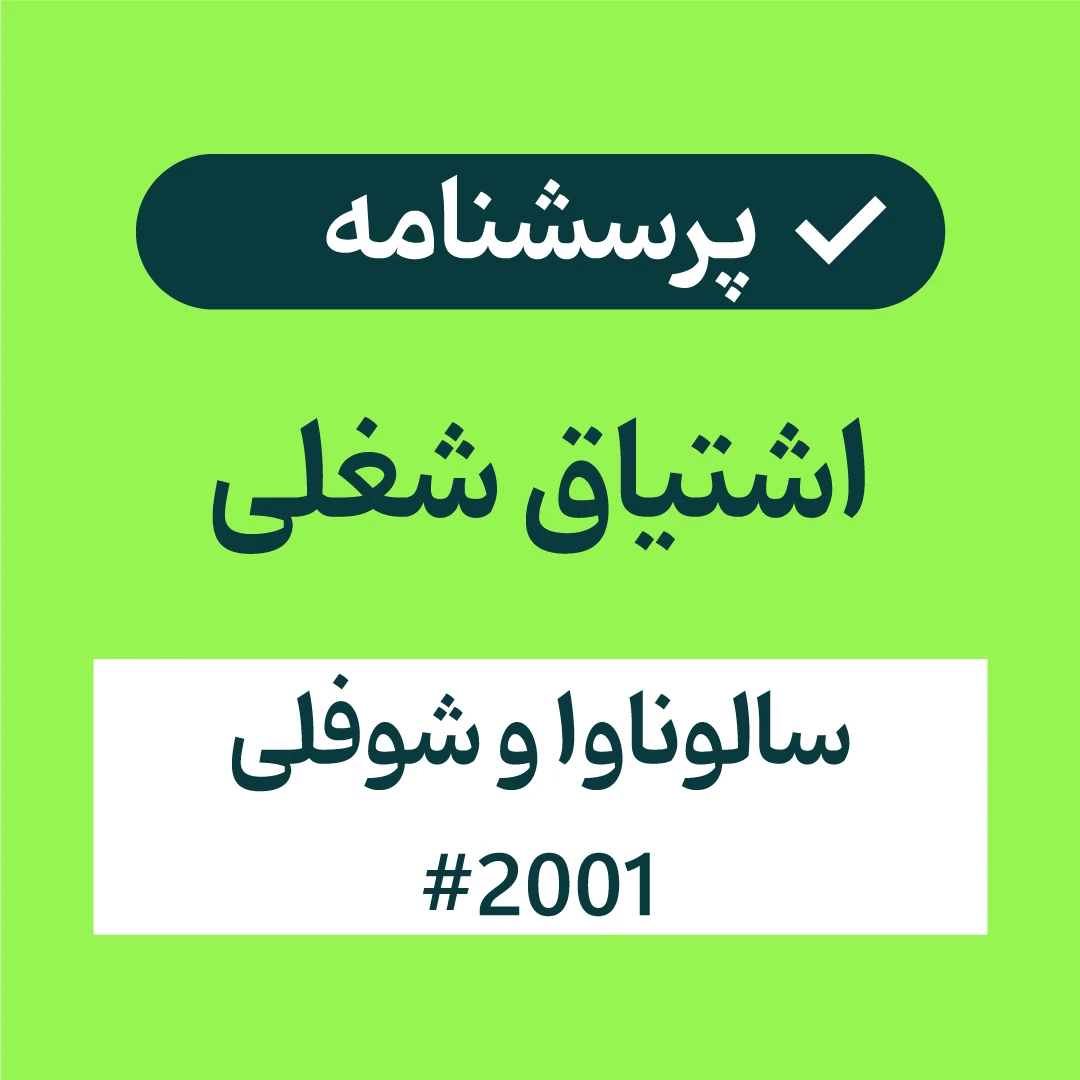
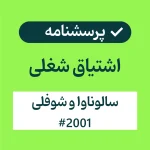
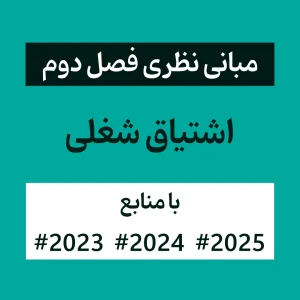
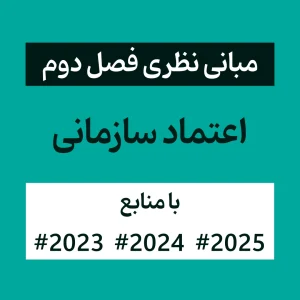
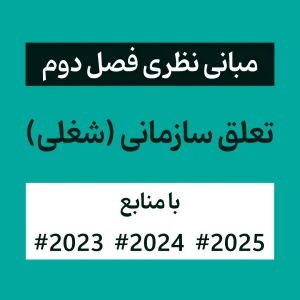
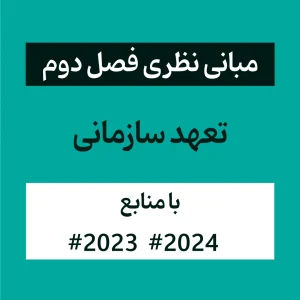
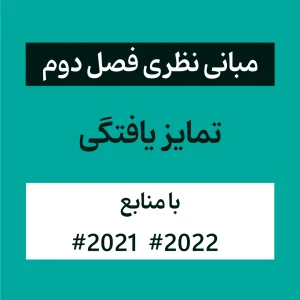

0دیدگاه